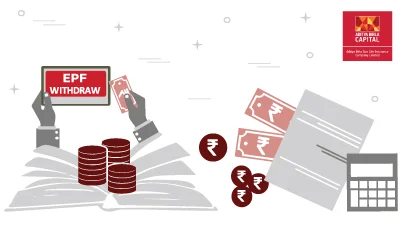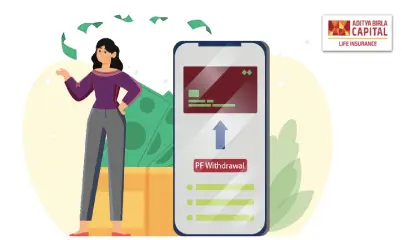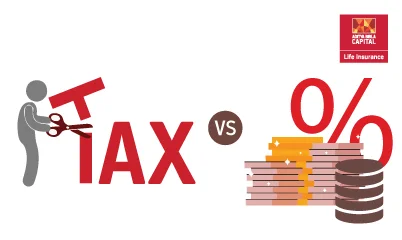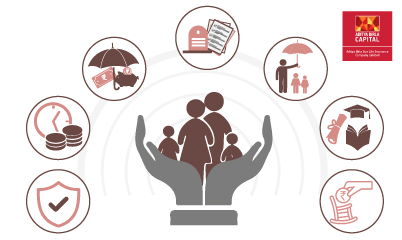Deduction Under Section 80DD


Get Guaranteed Returns After a Month^
Unlock the Power of Smart Investment!

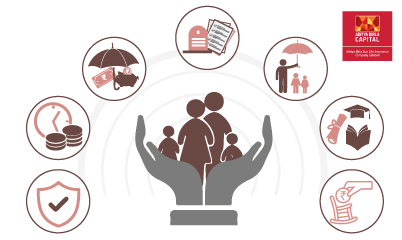
-
 Table of Contents
Table of Contents- What Does Income Tax Section 80DD Mean?
- Eligibility Requirements for Section 80DD Deductions
- Terms and Conditions for Making a Deduction Claim
- How Can I Make A Section 80DD Deduction Claim?
- Document Needed To Claim A Deduction Under Section 80DD
- Additional Information Regarding Claim Deduction
- What Does "Dependents" Imply In The Context Of Section 80DD?
- What Does "Disability" Imply In The Context Of 80DD?
- Which Conditions Are Covered Under Section 80DD?
- Amount Of The Section 80DD Deductions Permitted
- Which Medical Certificate Is Necessary To Comply With Section 80DD?
- What Prerequisites Must Be Met Before A Disabled Dependant May Receive Insurance Or A Deposit To Qualify For An 80DD Deduction?
- Conclusion
- FAQs
What Does Income Tax Section 80DD Mean?
Eligibility Requirements for Section 80DD Deductions
Terms and Conditions for Making a Deduction Claim
How Can I Make A Section 80DD Deduction Claim?
Document Needed To Claim A Deduction Under Section 80DD
Additional Information Regarding Claim Deduction
What Does "Dependents" Imply In The Context Of Section 80DD?
What Does "Disability" Imply In The Context Of 80DD?
Which Conditions Are Covered Under Section 80DD?
Amount Of The Section 80DD Deductions Permitted
Which Medical Certificate Is Necessary To Comply With Section 80DD?
What Prerequisites Must Be Met Before A Disabled Dependant May Receive Insurance Or A Deposit To Qualify For An 80DD Deduction?
Conclusion
FAQs
• A copy of the medical certificate attesting to the dependent's incapacity.
• Form 10-IA must be filed if the dependent is handicapped and has multiple impairments, autism, or cerebral palsy.
• Taxpayers must provide a self-declaration certificate detailing the costs of the handicapped dependent's medical care, including nursing, rehabilitation, and training.
• The original receipts for the costs must be kept on file if a claim is being made for the money paid toward insurance policies purchased for the handicapped dependent.
Dependents with at least 80% handicap are considered severely disabled. Under Section 80DD of the Income Tax Act, the person who pays for their dependent's medical expenditures may deduct up to Rs. 1.25 lakh from their income.
For Indian resident taxpayers who are handling the costs of a disabled dependent, Section 80DD is a terrific tax benefit tool. This tax break also guarantees that persons with disabilities get the appropriate care and may live respectably with the help and support of family members.
About Author
ABSLI DigiShield Plan
-
Disclaimer
ABSLI DigiShield Plan. This is a non-linked non-participating individual pure risk premium life insurance plan; upon Policyholder’s selection of Plan Option 9 (Level Cover with Survival Benefit) and Plan Option 10 (Return of Premium [ROP]) this product shall be a non-linked non-participating individual life savings insurance plan. UIN: 109N108V11
^ ABSLI DigiShield Plan scenario: Female, non smoker, Age: 21 years, level Term Insurance, Premium paying Term: regular pay, policy term: 25 years, Pay frequency: Annual Premium of Rs. 6500/12 months (on average Rs. 542/month) Exclusive of GST (offline premium).
~ Our life insurance policies cover COVID -19 claims under life insurance claims, subject to applicable terms & conditions of policy contract and extant regulatory framework.
ADV/11/22-23/2160
Subscribe to our Newsletter
Get the latest product updates, company news, and special offers delivered right to your inbox
Thank you for Subscribing
Stay connected for tips on insurance and investments

 Home Loans
Home Loans
 Personal
Loans
Personal
Loans
 SME Loans
SME Loans
 Business Loans - Udyog
Plus
Business Loans - Udyog
Plus
 Loan against Securities
Loan against Securities
 Mutual Funds
Mutual Funds
 Stock and
Securities
Stock and
Securities
 Portfolio
Management Services
Portfolio
Management Services
 Pension Funds
Pension Funds
 Life
Insurance
Life
Insurance
 Health
Insurance
Health
Insurance
 Wellness
Solutions
Wellness
Solutions
 Pay Bills
Pay Bills
 Pay anyone
Pay anyone
 Pay on call
Pay on call
 Payment
Lounge
Payment
Lounge
 ABC Credit
Cards
ABC Credit
Cards

 1800-270-7000
1800-270-7000






